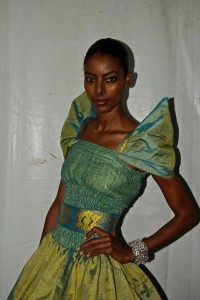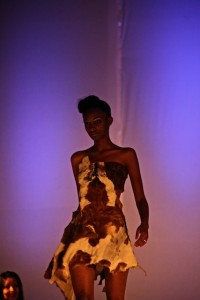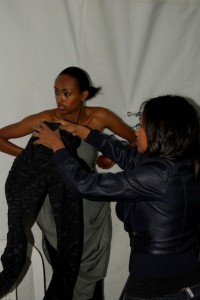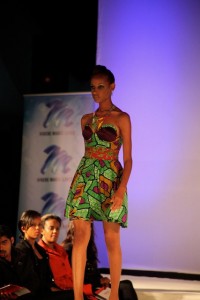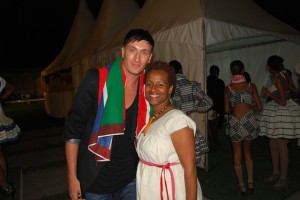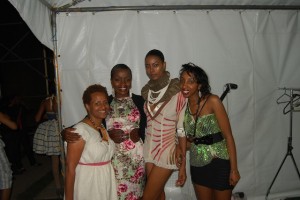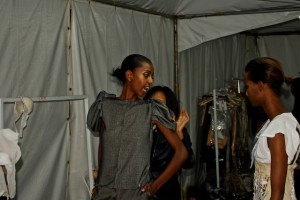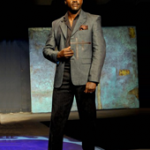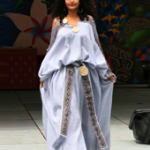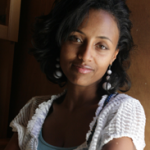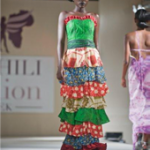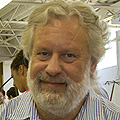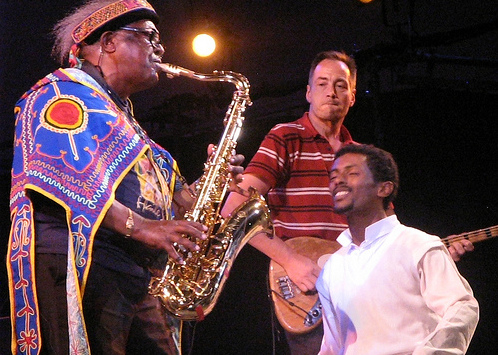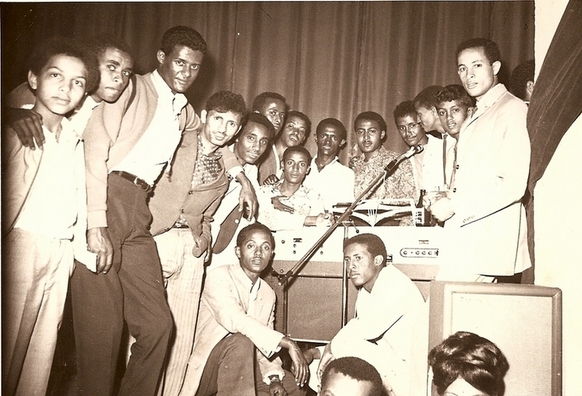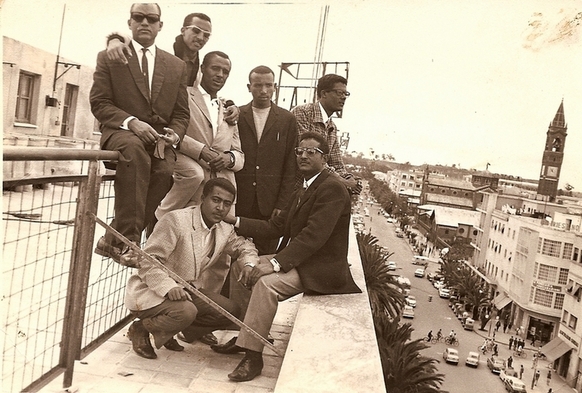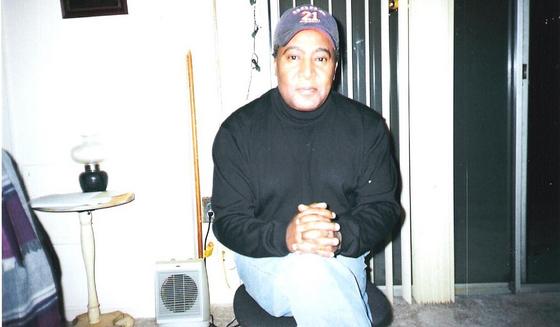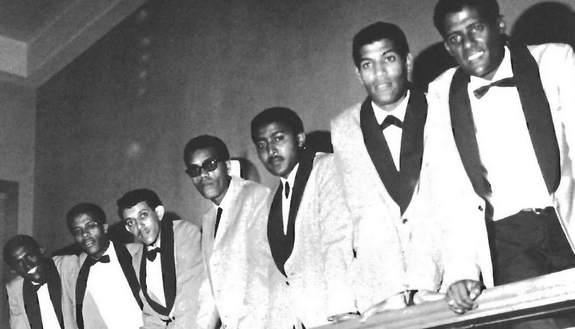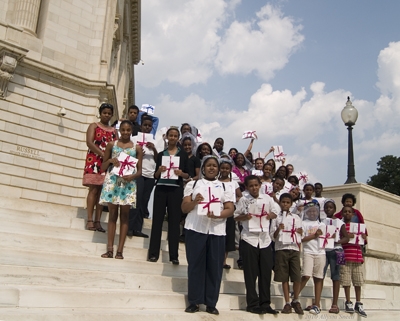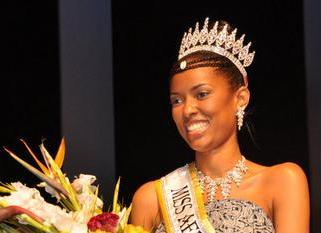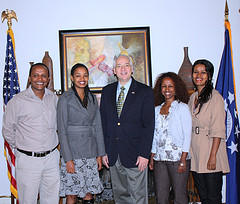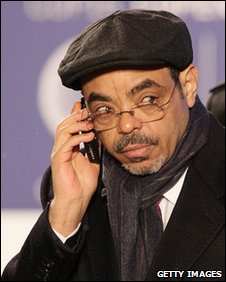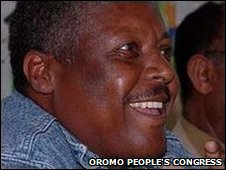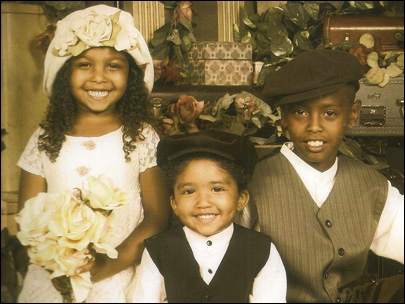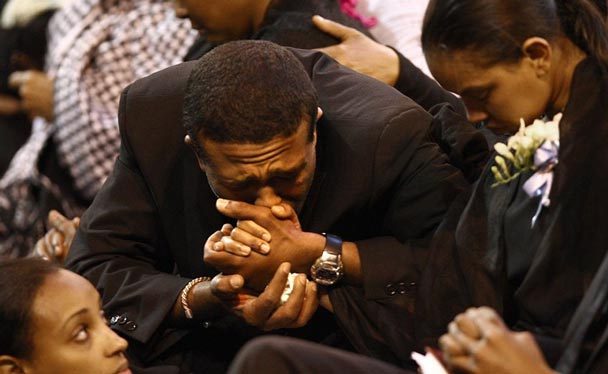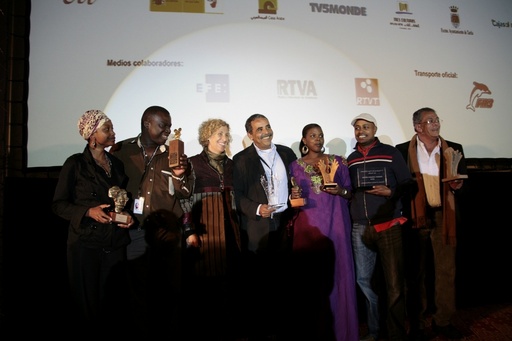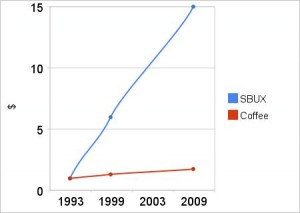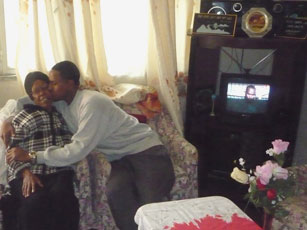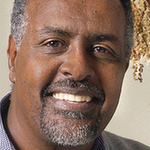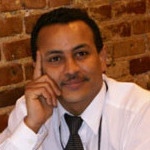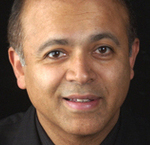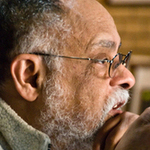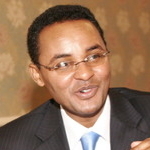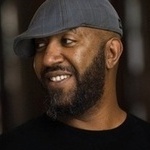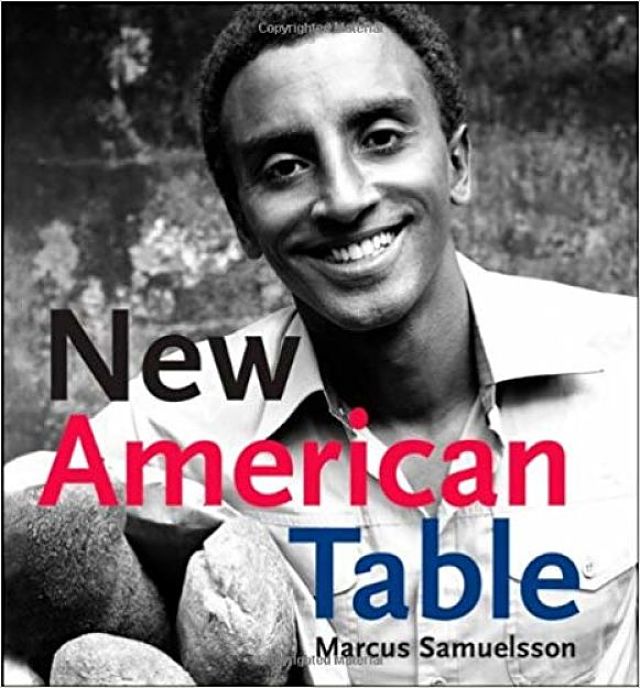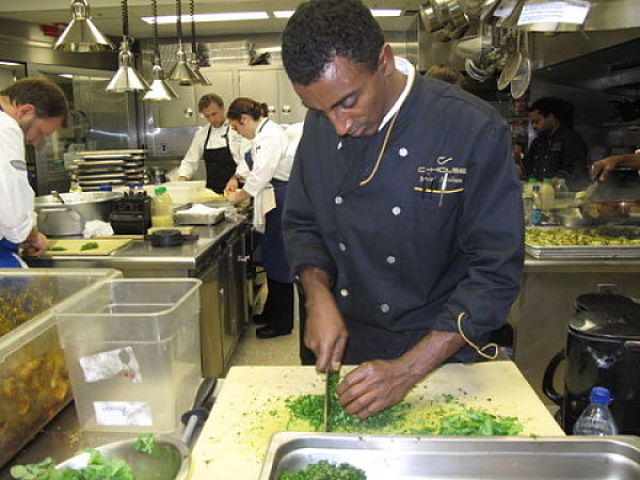Tadias Magazine
By Ayele Bekerie, PhD

Published: Monday, December 21, 2009
New York (TADIAS) – “We don’t have to prove it to anyone. [If] you want to believe, it’s your privilege. If you don’t want to believe, it’s your own privilege again.”
The Patriarch of the Ethiopian Orthodox Tewahedo Church (EOTC), offered the above response to Professor Henry Louis Gates, Jr. of Harvard University when asked to provide ‘a piece of evidence’ for the Ark of the Covenant during an interview for a PBS documentary film in 2003 in Addis Ababa, Ethiopia. The Patriarch, in perhaps most memorable moment of the interview, reminded the learned professor from Harvard that the Ark and its meaning to Ethiopians, is a matter of faith and not proof.
The Ark of the Covenant, which registers close to three thousand years (one thousand years of amete alem or zemene bluei (Old Testament) and two thousand years of amete mehret or zemene hadis (New Testament)) of history, beginning with the period of Queen Makeda (also known as Queen of Sheba) of Aksum. The Ark has been established as a central tenet of Christianity in Ethiopia. It captures the true essence of faith to at least 40 million believers in the ancient-centered Ethiopia and the EOTC’s dioceses all over the world. Its people’s communication to Igziabher is mediated through this sacred prescribed relic. The purpose of this essay is to narrate a history of the Ark and its relevance from a perspective of Ethiopian history and culture.
The EOTC, according to Abuna Yesehaq teaches, “Igziahaber is one Creator, one Savior, and redeemer for all humankind.” It also teaches, based on the ecumenical council’s confessions that Jesus Christ was not in two natures but rather one. The two natures were one nature united without any degree of separation, thus, making Christ both perfect God and perfect person simultaneously.
According to Abba Gorgorios, the Ark or what Ethiopians call tabot is linked to the Old Testament and the freedom of the Hebrew Israelites. Moses led the Israelites out of Egypt; he was accompanied by two tablets that were inscribed with asertu qalat which were given to him by the Amlak of Abraham, Yisahq and Yacob on Mount Sinai (debre sina). Moses was further instructed by Amlak to build a container (tabot) for the tablets or what Ethiopians call tsilat and a temple.
Abba Gorgorios described the tabot not only as a safe and secret station for the tsilat, but it is also a site of spiritual revelation, the revelation of Amlak’s limitless mercy. The tabot is like a throne and at the time of its coronation (negse), it is revealed spiritually to the faithful. Among the various Old Testament traditions Ethiopia decided to incorporate to its form of Christianity is the tradition of the Ark.
The Ark, which is brought out of its inner sanctum during important church festivals, is not a physical representation of Igziabher (God). The Ark is believed to carry the presence of God and Ethiopia is perhaps the first country in the world to accept the Old Testament faith. The Ark is an accepted tradition among the Oriental Churches. For instance, the Copts referred to it as Luhe. The Eastern Churches, on the other hand, do not embrace the Ark in their faith.
According to Sergew Hable Selassie, Abu Salih, the Armenian traveler and author, was the first foreigner who made a reference to the existence of the Ark of the Covenant in Ethiopia. He described the Ark in which are the two tables of stone, “inscribed by the finger of God with the Ten Commandments.”
The Ark of the Covenant may have been a source of mystery and curiosity for people like Henry Louis Gates, Jr., but for Ethiopian Christians, it is the rock of their faith. There have been countless conjectures regarding the Ark’s fate and final resting place, but the Ethiopian Christians locate the Ark or what they call Tabot at the center of their faith. While the rest of the world sees it, at best, as a source of inspiration to write mystery novels, construct countless theories or make adventurous films, “the Ethiopians believe that the Ark of the Covenant was brought to Ethiopia from Jerusalem with the return of Menelik I after his famous visit with his father, the King Solomon.”
Writers such as Graham Hancock at present or James Bruce in the eighteenth century make their fortunes or earn their fame by dedicating or investing their lives to ‘discover’ the not-so-lost Ark of the Covenant or other ancient relics. To Ethiopians, Menelik I also brought the Kahinat of the Old Testament and many Old Testament books.
The EOTC is a member of the family of Orthodox churches, such as the Coptic, Greek, Armenian, Syrian, Indian, Russian and Serbian churches. “Together with the Roman Catholic Church and the Byzantine Orthodox Church, the Orthodox Churches were a single church for four centuries until they split apart at the Council of Chalcedon in 451 CE.” The EOTC has 32 dioceses in Ethiopia. It has also dioceses in Jerusalem, the Caribbean, South America, the United States, Canada, Europe, Australia and several sites in the rest of Africa. The EOTC has 40 archbishops, 400 thousand clergy and 30, 000 parish churches.
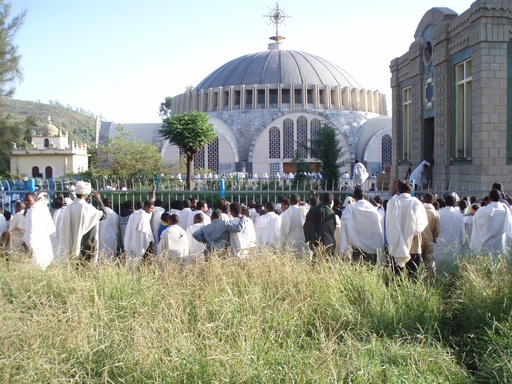
Figure 2: The Faithful praying and waiting for tsebel (holy water) by the fence of the
Chapel where the Ark is kept. Across is another view of Saint Zion Maryam Church.
(Photo by Ayele Bekerie)
The story of the not-so-lost Ark of the Covenant is widely known, but only Ethiopians claim that they are its keepers. Legend has it that the Ark is endowed with enough power, if approached too closely or touched, to strike mortal beings dead. These aspects of the Ark has been extrapolated and exploited in movies such as Raiders of the Lost Ark. Its power may have also encouraged the Ethiopians to always keep it under wrap. Not only that, at the core of the ecclesiastical, liturgical and doctrinal teachings and practices of the Ethiopian Orthodox Tewahado Church, the centrality of the Ark becomes quite evident.
The Ark is, in fact, the most sacred and defining symbol of the Church, which is one of the oldest churches in the world. Ethiopians wholeheartedly believe that the original Ark was brought to Ethiopia from Jerusalem by Menelik I, a creation of royal affairs between the Queen of Sheba of the Aksumites and King Solomon of the Israelites. Menelik I, according to Ethiopian tradition, was a consolidator of a new dynasty found by his mother, approximately 3,000 years ago.
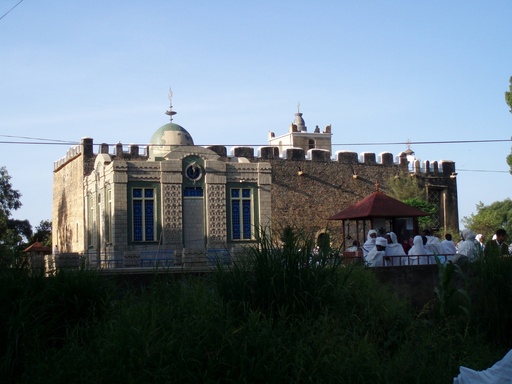
Figure 3: The Chapel for the Ark of the Covenant. (Photo by Ayele Bekerie)
It is important to note that organized and orderly system of government did not begin with Queen of Sheba in Ethiopia. There were a series of rulers prior to the rise of the Queen. The Queen succeeded in elevating her empire to a global status by wisely adopting Judaism. The extent of her wisdom even becomes clearer when the rule of her son became irreversibly and forever linked to the great symbol: the Ark of the Covenant. The Ark, in the Ethiopian context, is a great source of tradition and continuity. With established rituals, the faithful maintain a sense of connection to Igziabher and through religious pilgrimage; they ensure the vitality of their religion.
I concede that the story of the Queen of Sheba and King Solomon has several versions both within and without Ethiopia. For instance, the origination of the Queen’s Arabian name, Bilqis, is a derivative of a “vast and confused skein of traditions and tales.” The Queen is cited by some Arabian sources as having been born in Mareb, the capital of the Sabean Empire, and as being the successor of her father. The grand temple of the Mahram Bilqis in Mareb still bears her name, and according to local folklore, her spirit surrounds the temple and nearby dam.
In Hebrew traditions, the Old Testament refers to the Queen as “Queen of Sheba” and in the New Testament she is the “Queen of the South” or Azeb. The Ethiopians, on the other hand, not only they use these biblical names, but they have also added their own name, Negest Makeda.
In the Ethiopian text of the Kebra Nagast, an elaborate version that places the Queen at the center of the tale is rendered. The Ethiopian source distinguishes itself by devoting its focus on Makeda’s son Menelik I. In fact, the tradition of Menelik I belongs more to ancient Ethiopia than the Arabian Peninsula.
The Ark’s holy pedestal is in a chapel next to Saint Maryam Zion Church in Aksum, the holy city of Orthodox Christianity. Georgelas observes, “If most places draw guests inside for a transformative experience, Aksum’s unassuming chapel does the opposite. By shrouding itself and its holy treasure in mystery, it gains its power by remaining unseen – a sacred place that can’t be entered or directly experienced, only imagined and believed.” Georgelas is expressing the views of those who see the Ark and its ‘discovery’ as their potential source of glory. The Ethiopians never entertain such a view. However, keenly recognizing the undying interest of adventurers or enemies to wrest the Ark from them, they came up with a strategy of keeping it safe and secure.
The Ark is replicated thousands of times so that its presence within the faith and history of Ethiopia remains uninterrupted from one generation to another. The replication is also a strategy to secure the ever presence of the Ark by making it next to impossible to remove the Ark from the chapel. In addition, the Ark is guarded by a succession of monks who, once anointed, remained in the Chapel or the chapel grounds until they die. Their sole duties are to protect the Ark.
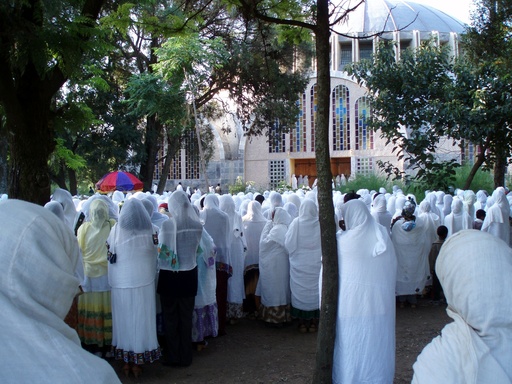
Figure 4: Celebrating the day of Saint Maryam in the month of September at Saint
Zion Maryam Church. (Photo by Ayele Bekerie)
Munro-Hay’s The Quest for the Ark of the Covenant documents and narrates the medieval history of Ethiopia, particularly the history of the monarchy, the church and the contending forces against these two major institutions both from within and without. Among the well-documented medieval history, a reader finds the attempt by the Catholic Church to destroy the Ethiopian Church during the rule of Emperor Susenyos quite fascinating. “On 11 December 1625, at Danquaz, an Emperor of Ethiopia, Susenyos, knelt before a Catholic Patriarch to offer obedience to the Roman Pontiff, Urban VII.” His short-lived conversion triggered a bloody civil war where millions of Ethiopians died. It is important to note, however, “In a dramatic and successful effort to preserve their most sacred relic, some priests fled with the Holy Tabot of Aksum, as the Catholic faith grew stronger.” Ethiopians also succeeded in restoring their faith thanks to the martyrdom of Takla Giorgis, the son-in-law of Susenyos and many others. In 1628, Takla Giorgis smashed the sacred ornaments of the Catholics placed in the Holy of Holies of the Aksum Church. After 11 years and six months stay in Digsa, the eastern highlands of Eritrea, the Ark of the Covenant was returned to Aksum.
Menelik I also began, as a result of his successful transfer of a holy relic and royal blood, the Solomonic line of dynastic rulers, who ruled Ethiopia until 1974. Emperor Haile Selassie was the last ruler to claim a line of this mythologized and enduring dynasty in Ethiopian history. The Ark is, therefore, at the center of both church and state formations and consolidations in Ethiopia. The two institutions not only functioned in tandem, but they have also played defining roles by delineating some of the cultural, political, social and economic parameters of Ethiopia.
The Ark became the basis for establishing the divine lineage of Ethiopian monarchy in addition to centering the faithful to a unique form of Christianity. The Ark as a central symbol of Christianity is exclusively an Ethiopian phenomena. The Ark is called Tabot in the Ethiopian languages and its sacredness is maintained by always keeping it wrapped and placed in the inner most circle or citadel, Qidist, of the Church. As a matter of faith, Ethiopians always insist that they possess the original Ark. The holy relic, however, has had a tremendous impact on both Judaism and Christianity. Despite intense controversies associated with the relic, particularly with regard to its existence, the established and regularly observed religious rituals of the Ark in Ethiopia, has assured undying interest in it throughout the world.
The remarkable marriage between the Old Testament and the construction of Ethiopian Orthodoxy is perhaps captured with the picture below. The fallen largest obelisk is shown together with Tsion Maryam Church in Aksum. According to oral traditions, the Ark of the Covenant’s supreme power sliced the obelisk out of the rock and set it into place.
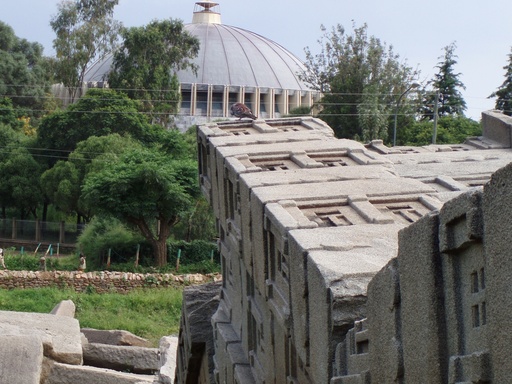
Photo by Ayele Bekerie.
The Ethiopians’ assured insistence in possessing the Ark ought to be seen in the context of Biblical history and in their desire to see themselves within it. The Ark is tied to the histories of the Israelites and Ethiopians. While the tradition of the Israelites, as amply described in the Old Testament, settled with the story of the lost Ark, the Ethiopian tradition is constituted on the belief that the not-so-lost Ark is in Aksum.
According to Hoberman, The Ark suddenly disappeared in the sixth century BCE, perhaps at the time of the Babylonian invasion and destruction of the temple of Jerusalem. Nebuchadnezzar led the Babylonian army. The Ark was originally housed in a temple built by King Solomon in Jerusalem circa 970 – 930 BCE. Most biblical scholars also acknowledge that the Ark was originally built by Israelites. It was Moses, the prophetic leader of the Israelites, who placed the original stone tablets of the Ten Commandments, which he obtained from God atop Mount Sinai. The Ethiopians call the Ten Commandments asertu qalat.
The Ethiopian source for the Ark of the Covenant is the authoritative and the scared book, Kebra Nagast (Glory of Kings). This ancient book, in the main, narrates how the Ark was transferred from Jerusalem to Aksum and proclaimed as the most important symbol of the Church. Kebra Nagast vividly describes the journey of Makeda (Negesta Saba or the Queen of Sheba) to Jerusalem to ascertain King Solomon’s greatness and wisdom and in the process how Menelik was begotten. When the son came of age, “he went to visit his father, and on his return journey was accompanied by the first born sons of some Israelite nobles, who, unbeknown to Menelik, stole the Ark and carried it with them to Ethiopia.” Geogelas claims that the son of the high priest of Jerusalem, Azariah stole the Ark and Menelik only learned that the Ark had been stolen on his journey back to Ethiopia. Menelik still continued on his journey after hearing of the theft, and brought the Ark to Aksum.
The Ark, Hoberman writes, became the source of much elation, for it is the outward symbol of God’s holy presence. Ethiopians also see the relic’s ‘safe and secure’ presence in Aksum as legitimate heirs to the kings of Israel and Judah. The Ark marks the decision to switch from an indigenous religion to Judaism, which later became transformed, voluntarily and peacefully, into Ethiopian Christianity.
It is important to note that the switch from traditional religion to Judaism or the addition of Christianity to the belief system was voluntary. This method of religious adoption is instrumental in the creation and maintenance of indigenous traditions. There were no religious wars or invasions in the process. In fact, the conscious decision to incorporate these two monotheistic religions may have paved the way for creative adaptation and for the proliferation of literary and artistic traditions in Aksum and beyond. To the faithful, the Ark made Ethiopia “the second Zion; Aksum, the new Jerusalem.”
The continuity of a remarkable tradition becomes apparent nationally four times a year during Gena (the Feast of Nativity), Timqat (the Feast of the Glorious Baptism), Tinsaé (the Feast of the Holy Resurrection), and Mesqel (the Feast of the Illuminating Cross). The event that the Ark is magnified the most is on January 18th in conjunction with the celebration of Timkat or Epiphany. The replicas of the Ark or tabotat are brought out of the Churches and paraded through the streets in the presence of a sea of colorfully costumed and purely joyous believers throughout the country. An observer describes the ceremony as follows:
“On their heads the priests carried the tabotat, wrapped in ebony velvet embroidered in gold. Catching the sight of the scared bundle, hundreds of women in the crowd began ululating – making a singsong wail with their tongues – as many Ethiopian women do at moments of intense emotion.”
There are also special annual celebrations of the coronation of tabotat in revered sites, such as Geshen Mariam on September 21, Tsion Mariam on November 21, Qulubi Gabriel on December 19 (As an undergraduate student at the then Alemaya College and now Horemaya University, I affirmed my faith, which was passed on from my parents, by walking from Alemaya to Qulubi for the annual festival and spiritual ecstasy by attending yequlubi Gabriel tabot neges.), Abo Gebre Menfus Qedus on October 5, Gena or Christmas in Lalibela on December 29, Timkat or Epiphany in Gondar on January 11. It is very common for the faithful to make pilgrims at least once to all these sites.
I trust Professor Henry Louis Gates, Jr., will be willing to reconsider to revise his mode of thinking regarding the not-so-lost Ark. I am sure, if he makes another ‘wandering’ trip to what he correctly calls the holy land, he will not ask the Patriarch for a ‘piece of evidence.’ Rather he may deploy his creative talent to narrate the extraordinary achievement of Ethiopians who succeeded in weaving an ancient tradition of the Ark and its unseen power to their sense of identity, continuity and inter-nationality.
The Monarchy may have gone, but tabot is negus in Ethiopia. The Ethiopians, without a doubt, believe the original Ark is located in a chapel of St Mary of Zion Church in Aksum. The replica of the Arc is found in over 30, 000 churches throughout the country as well as in Europe, Asia and the Americas. The Ark is central to the religious belief of the Christian Ethiopians. The Ark’s centrality in Ethiopian Christianity is bound to persist for generations to come.
Hymns to not-so-lost of the Ark, hymns to the majestic shrine, hymns to the visible embodiment of the presence of Igziabher, for it signifies the hybridity of our expressive and visual signposts drawn from the ancestral past to integrate into our much diverse and broader present Ethiopian culture.
—–
Publisher’s Note: This article is well-referenced and those who seek the references should contact Professor Ayele Bekerie directly at: ab67@cornell.edu
About the Author:
Ayele Bekerie is an Assistant Professor at the Africana Studies and Research Center of Cornell University. He is the author of the award-winning book “Ethiopic, An African Writing System: Its History and Principles” Bekerie is also the creator of the African Writing System web site and a contributing author in the highly acclaimed book, “ONE HOUSE: The Battle of Adwa 1896-100 Years.” Bekerie’s most recent published work includes “The Idea of Ethiopia: Ancient Roots, Modern African Diaspora Thoughts,” in Power and Nationalism in Modern Africa, published by Carolina Academic Press in 2008 and “The Ancient African Past and Africana Studies” in the Journal of Black Studies in 2007.
Join the conversation on Twitter and Facebook.
